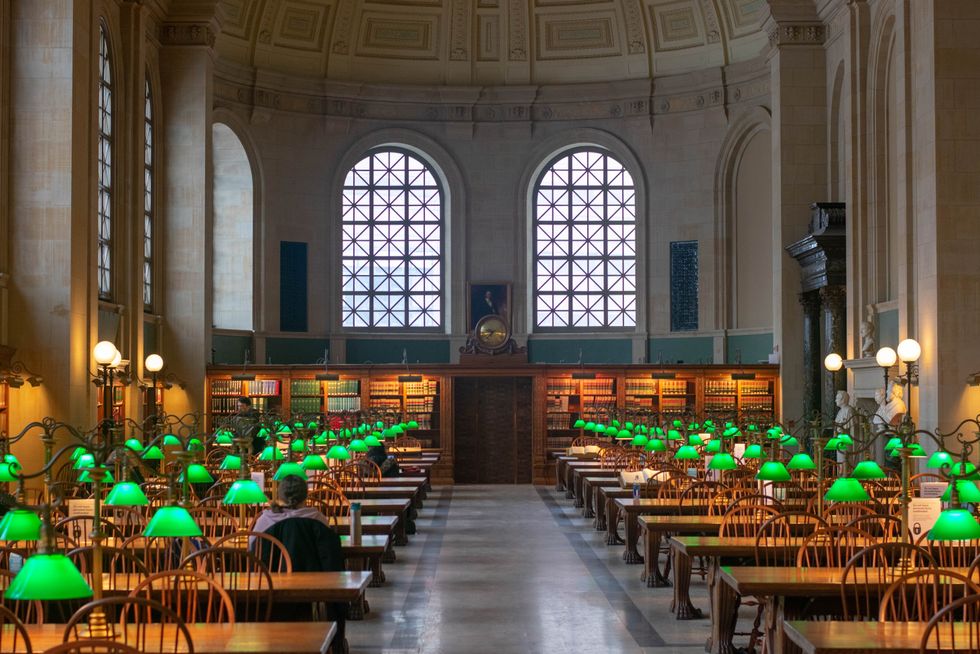3 Reasons Student Loan Debt Is A Ticking Time Bomb In This Country
The United States is amassing an unprecedented amount of debt from student loans that ultimately falls on the shoulders of young people everywhere and will eventually tumble into another economic catastrophe.
As a young person in today's society, I can say that we are forever surrounded by outside pressures and influences that tell us how to live our lives. One of the many burdens that we live through is this rigid notion that the one, true way to become a successful member of society is to attend college. Coming from a whole family of educators, I truly do understand and value the power of education and knowledge, and everyone should feel free to pursue if they so wish.
However, this country has hardwired our minds to think that a college degree is a secret key to living a happy and successful life. This enormous pressure that we ourselves have created is cultivating a massive problem in this country that is only getting worse and worse with each graduating class. The United States is amassing an unprecedented amount of debt from student loans that ultimately falls on the shoulders of young people everywhere and will eventually tumble into another economic catastrophe.
1. Where we are right now.
In the past several years, the amount of college students that have taken out student loans has hit an all-time high. Student loan debt has actually become one of the highest sources of private debt in this country. A Forbes article from last month states that there are now more than 44 million borrowers in the U.S. with student loan debt, and they collectively owe around $1.5 trillion dollars in debt. This amount of debt is severely crippling college graduates across the country and is not going away anytime soon. The extraordinarily high-interest rates make paying off student loans almost impossible; And unlike other forms of debt in this country, one can not file for bankruptcy for student loan debt. These traits cause people to end up in this endless cycle that not only damaging our economy but is tarnishing the standard of living for millions of Americans.
2. How we got here.
In post World War 2 America, the manufacturing industry of our economy was at an all-time high. However, as the years went by, our economy shifted towards a more serviced-based economy and our began manufacturing sector slowly began to shrink. This shift called for more people to pursue higher education in order to qualify for this new job market. As this country saw more and more college graduates getting higher paying jobs, society began to make a shift itself. We slowly started to connect the idea of the American Dream of success and happiness with a college degree, which eventually snowballed into our modern perception of college is the only way to experience the American Dream. This as then pressured people to put themselves into hundreds of thousands of dollar debt in pursuit of this dream.
3. What we could do to help solve this.
Even though I myself am a college student and believe college is a good thing, the reality is that it's not for everyone and no one should feel like a failure at life because they can't go. Instead of looking down at the people for not going to college, we should reveal some of the alternatives. There are so many other paths that people can take other than the standard 4-year college route. People shouldn't feel like they have to put themselves in enormous debt if they don't want to.


























We Need Degrees To Work, Yet We'll Work Forever To Pay For Our Degrees
"I don't how I'll pay for next semester. I don't even know if it's all worth it anymore."
September. For some students, this means pulling out their highlighters and index cards, forwarding their term bill to their parents. For many more, however, this time of year means pulling out their pockets and realizing they need to borrow money in order to go to class the following Monday.
This reality is the higher education system in the United States. One is expected to graduate from high school, apply to elite universities, and bury themselves in debt that will last them decades. Americans feel trapped in a system where they cannot find a job without a college degree, and it's getting even more competitive. Now, higher education is growing from the typical 4 years, with more students needing a master's degree to get an extra edge in their field.
Don't get me wrong, though. Boycotting education altogether is not the answer. To the contrary, a more educated population is important for not only personal growth but the growth of our entire society.
The true problem lies in the price of our education. Americans spend, on average, $30,000 on college every year per student. When the bottom third of Americans make no more than $37,415, it is strikingly evident that not everyone has access to those degrees without borrowing a massive amount money, blocking off tens of millions of Americans from entering the workforce without being weighed down by student loans. But this financial insecurity is not limited to those who are struggling to make ends meet. "Nearly 70 percent of all college graduates with a bachelor's degree from a public institution have student loan debt," cites a Forbes article (3).
That sounds really far out and distant, so let's focus back in on the micro-level: the American student. What happens when high school graduates see the staggering debt that their older siblings are facing post-university-graduation? Some are discouraged from enrolling in the very beginning, but even more are deterred from finishing college after already starting. A blanket of hopelessness drapes over them, even within the second week of classes. One student comments, "I don't how I'll pay for next semester. I don't even know if it's all worth it anymore."
That sentiment is not only depressing but also dangerous. These students are not unmotivated or distracted, as suggested by political pundits from previous generations. They are frustrated and terrified. Mere years ago, that "barista with a bachelor's degree" is a punchline but now is a stunning reality for an entire generation.